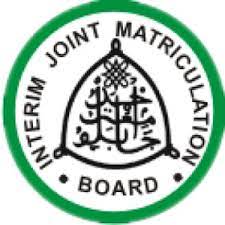Themes In The IJMB Literature Text Antigone By Sophocles; This study material is suitable for students who are sitting for the forthcoming IJMB examination. The Drama text titled Antigone is used for the IJMB examination till 2024.
Characters In The IJMB Literature Text Antigone By Sophocles
Themes In The IJMB Literature Text Antigone By Sophocles
Title: Exploring Themes of Morality and Civil Disobedience in Sophocles’ Antigone
Sophocles’ timeless tragedy, Antigone, delves into profound themes that continue to resonate with audiences across centuries. The play grapples with the clash between personal morality and the demands of state authority, shedding light on the complex nature of human ethics. This article examines the prominent themes of morality and civil disobedience as portrayed in Antigone, exploring their relevance and enduring significance in contemporary society.
- The Conflict of Personal Morality:
Antigone revolves around the central conflict between Antigone and King Creon, highlighting the clash between personal ethics and the laws of the state. Antigone’s unwavering commitment to burying her brother Polynices, despite the edict forbidding it, raises profound questions about the individual’s responsibility to uphold their own moral principles in the face of unjust laws. - The Nature of Justice:
The play prompts an exploration of justice and its various manifestations. Antigone’s act of defiance challenges the notion that justice is solely determined by human laws, emphasizing the existence of higher moral codes that transcend societal norms. Through the character of Antigone, Sophocles raises thought-provoking questions about the balance between divine law and human legislation. - The Power and Limits of Authority:
Antigone examines the nature of authority and its inherent limitations. King Creon’s decree to leave Polynices unburied symbolizes the misuse of power, highlighting the dangers of authoritarian rule. The play prompts us to question the responsibilities and boundaries of those in positions of authority, reminding us of the need for moral integrity in governance. - Civil Disobedience and Resistance:
Antigone’s act of civil disobedience serves as a catalyst for exploring the significance of resistance against unjust laws. Her defiance resonates with contemporary discussions on civil liberties, human rights, and the duty of citizens to challenge oppressive regimes. Sophocles prompts us to consider the ethical implications of civil disobedience and the role it plays in effecting societal change. - The Tragic Consequences of Hubris:
The theme of hubris (excessive pride) is a recurring element in Greek tragedy, and Antigone is no exception. The downfall of characters like Creon serves as a cautionary tale, highlighting the tragic consequences of unchecked arrogance and the refusal to listen to wise counsel. The play reminds us of the dangers of hubris and the importance of humility in leadership.
Conclusion:
Summary Of The IJMB Literature Text Antigone By Sophocles
Sophocles’ Antigone remains a profound exploration of moral dilemmas and the tensions between personal ethics and the demands of authority. Its themes of morality, civil disobedience, justice, and the limits of power continue to captivate audiences, offering valuable insights into the complexities of human nature. The play serves as a powerful reminder of the enduring relevance of ethical questions and the need for individuals to grapple with these themes in their own lives and societies.









